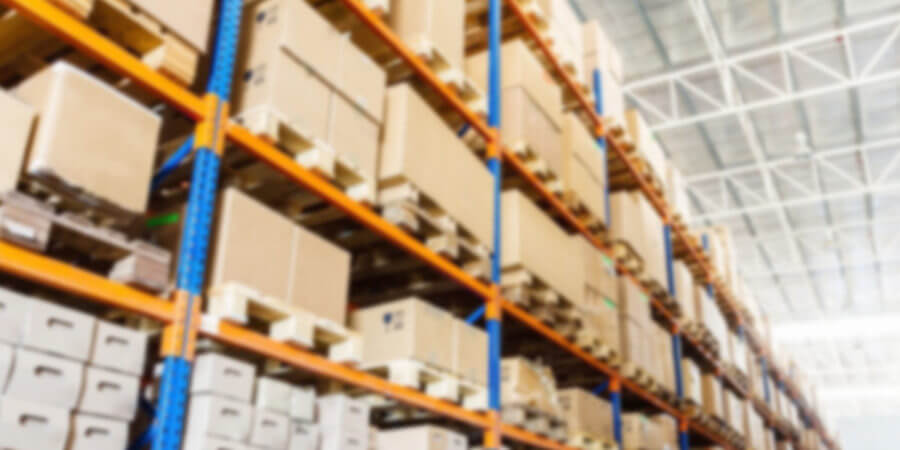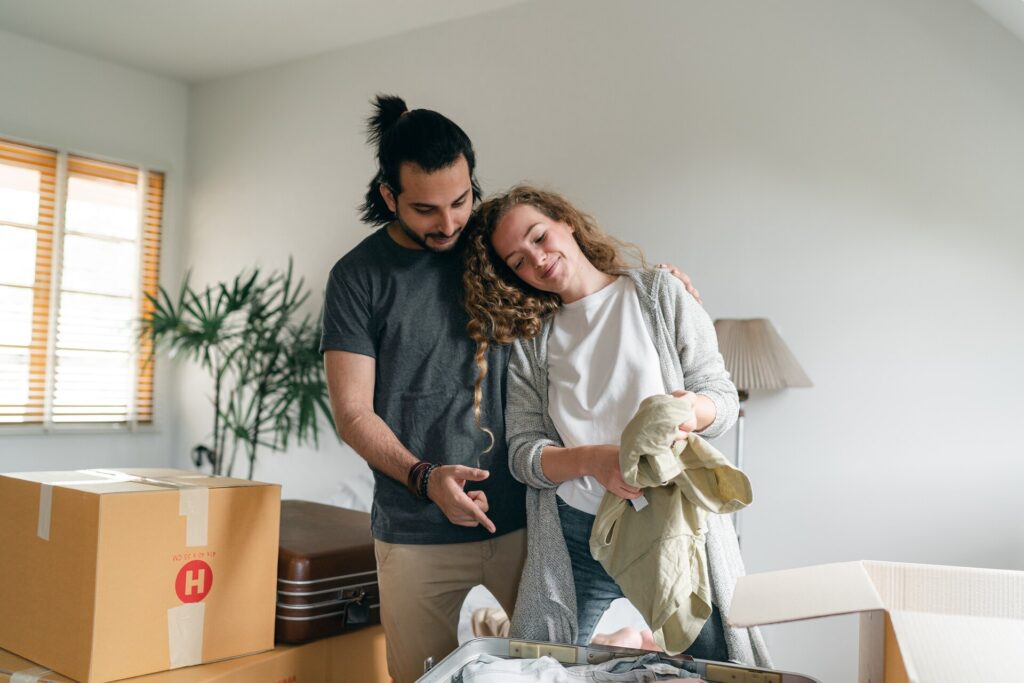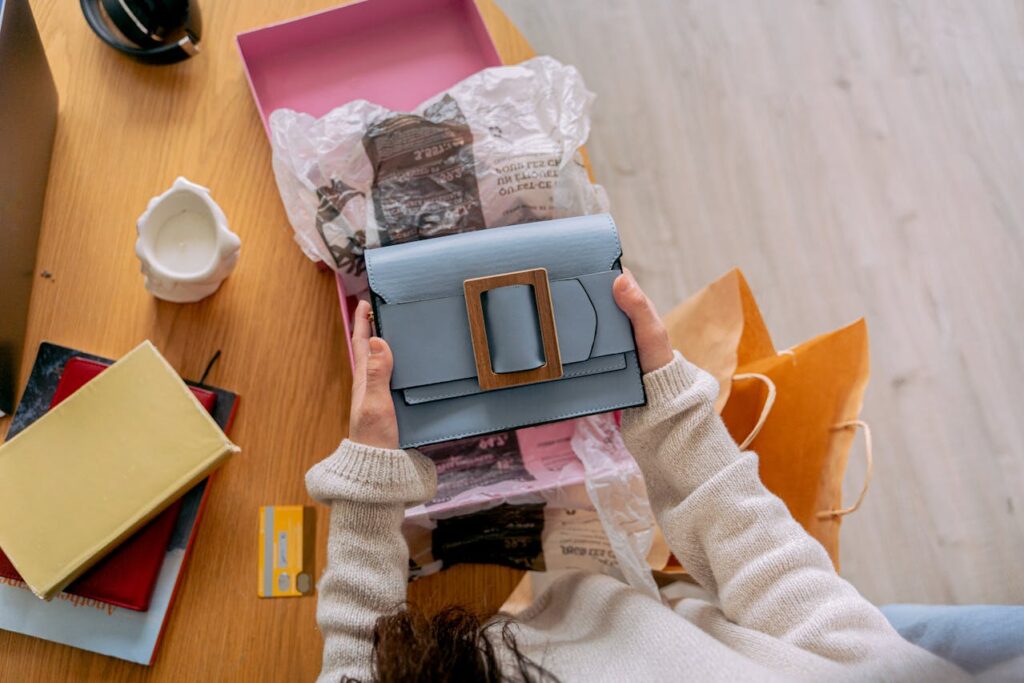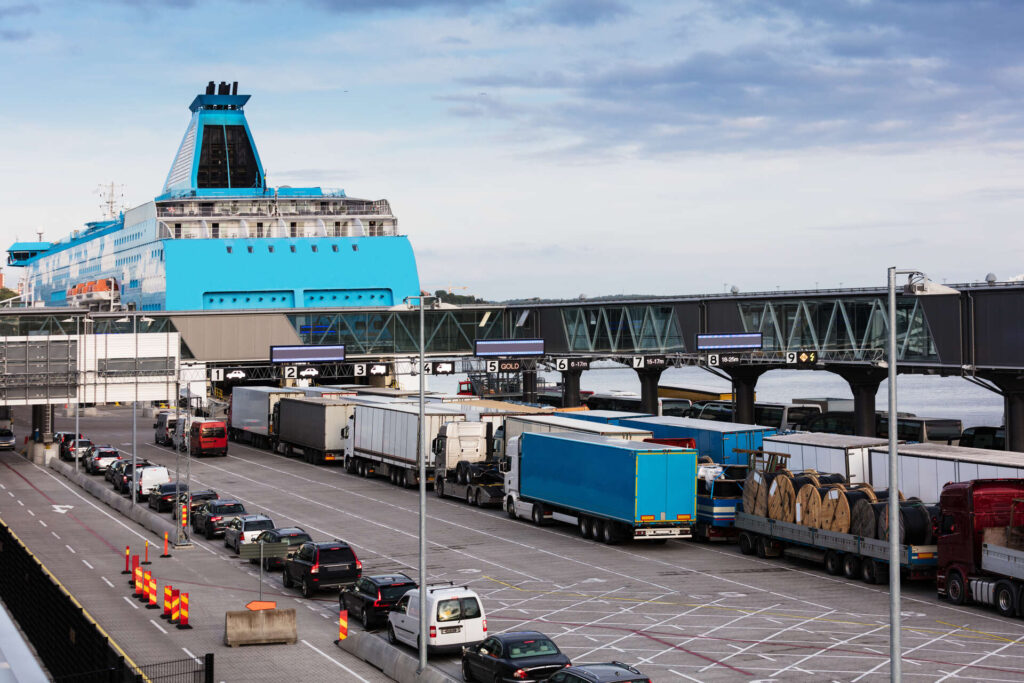In this comprehensive guide, we will walk you through the step-by-step process of how to pack pots and pans for shipping as you embark on the relocation adventure. Safely and securely wrapping your kitchen essentials ensures they arrive intact at your future destination. Follow our expert advice on the best way to pack and handle pots and pans and enjoy a stress-free international relocation.
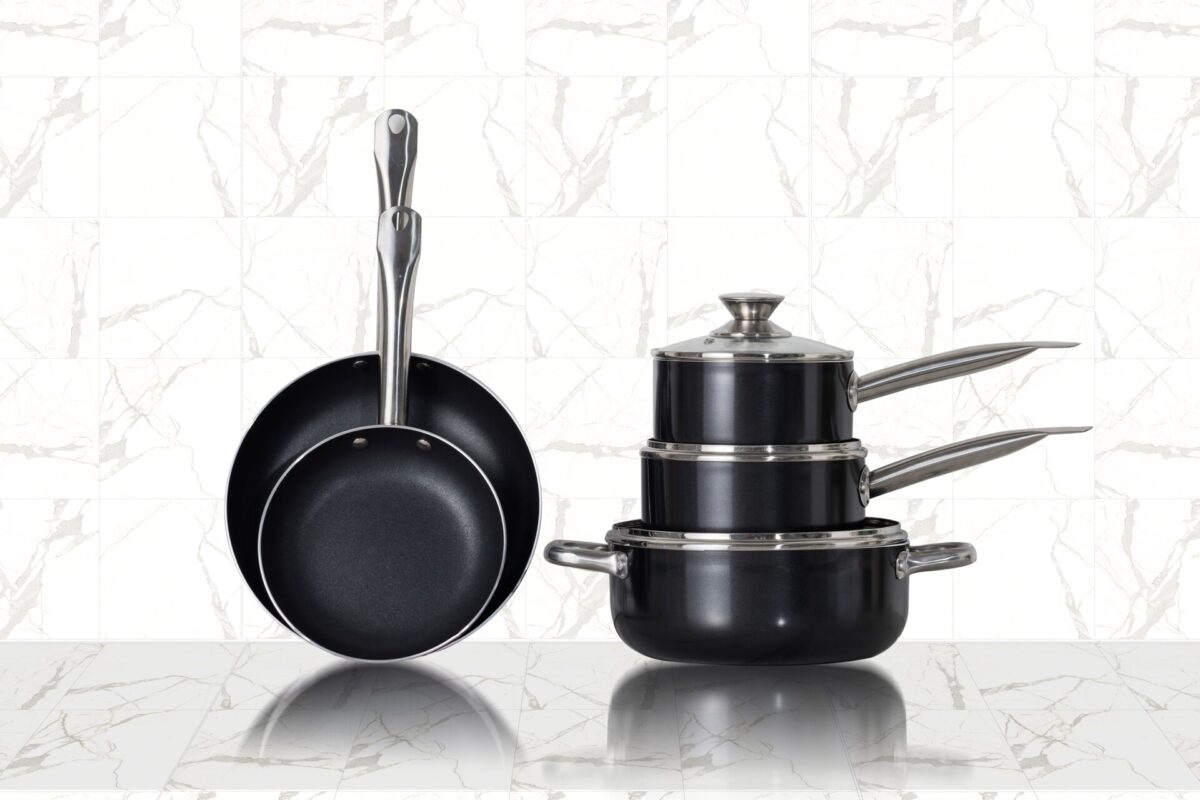

How do you pack pots and pans for moving? Start by assessing your possessions, decide what is worth relocating, and gather the necessary supplies to box everything up. Clean and dry everything before wrapping it up, and stack your objects to maximize space inside the crate. Label containers properly for an easier unpacking process.
Step 1 – Assess Your Inventory
Take the time to go through all your belongings and create a detailed relocation checklist of items you plan to relocate. Evaluating your inventory will help you determine the scope of the move and give you a better understanding of the packing materials and transportation needed.
Make a note of any valuable or fragile items, such as delicate or non-stick pans, that require special care during relocation. By conducting this inventory assessment, you can streamline the packing and moving overseas process, ensuring a smooth and organized relocation.
Take Stock of Your Pots and Pans Collection
Gather all the kitchen essentials in one place and carefully assess the number and types of all of the cookware you have. Consider their sizes, materials, and any special features they may possess. Taking stock of your collection allows you to make informed decisions on how to relocate them efficiently and securely.
Decide Which Items to Keep and Which to Part With
Have a look at your belongings and consider factors like their usefulness, sentimental value, and space constraints in your new home. Be selective and decide what to keep and even what to get rid of before you start wrapping everything up. Consider donating or giving away items in a good state or selling those objects on websites like Craigslist.
Sorting through your possessions will not only make packing and moving easier but also help you start fresh in your future space. Remember, it’s an opportunity to declutter and create a more organized and efficient living environment.
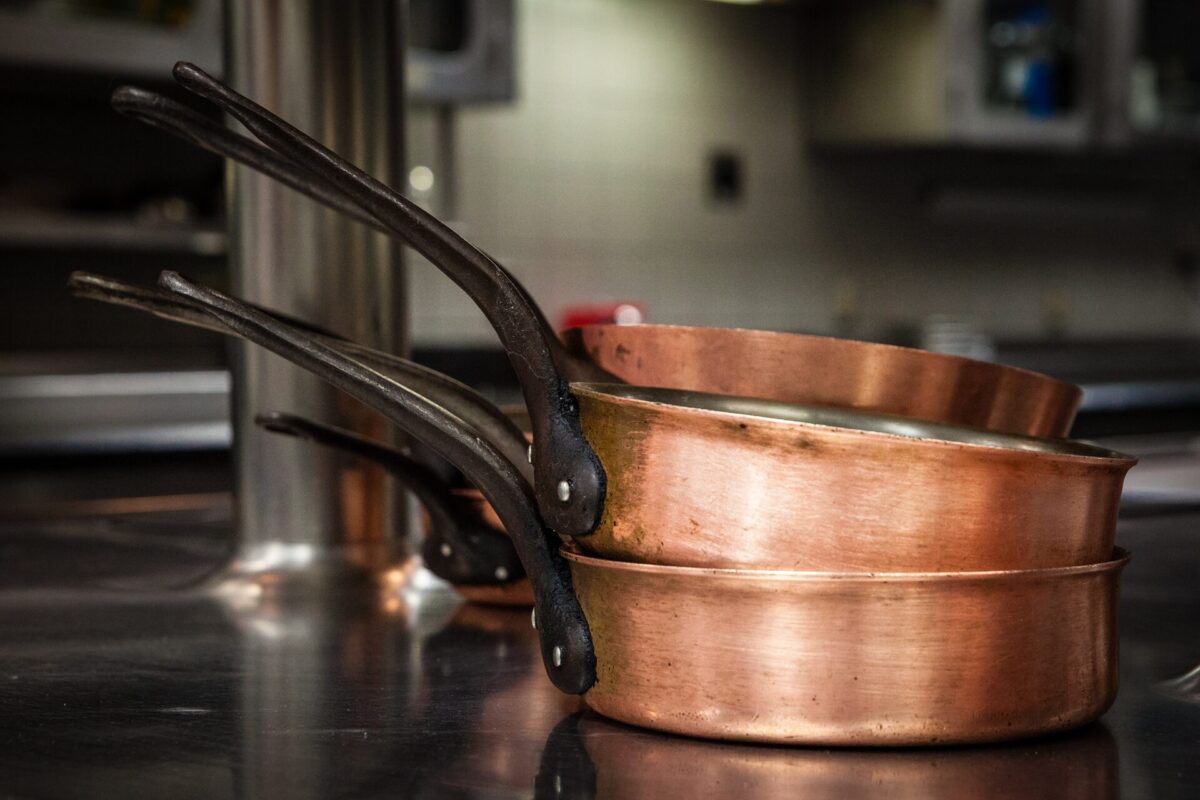

Step 2 – Gather Packing Supplies
To ensure a smooth and efficient process of packing pots and pans for moving, it’s essential to gather the necessary supplies. Source these materials from reliable stores to ensure their quality and durability. Organize your boxing up in one central location, as it will help you keep track of the whole process. These are the supplies you should consider gathering before you start packing:
- Sturdy cardboard boxes in various sizes,
- Clear paper for wrapping and stuffing,
- Bubble wrap for added protection,
- Foam peanuts or other cushioning materials,
- Duct tape to secure boxes,
- Marker for labeling your crates,
- Relocation labels or stickers for categorizing items.
Step 3 – Clean and Prepare the Cookware
Taking the time to prepare your cooking dishes properly will help maintain their quality and extend their lifespan in your future kitchen. Wash them with warm, soapy water, removing any food residues or grease.
Make sure they are completely dry before boxing them up to prevent mold or mildew during transit. Cleaning your cookware ensures a fresh start in your new home and prevents any odors or stains from transferring to other items during the move.
Ensure That Items Are Completely Dry to Prevent Moisture-Related Issues
Ensuring all items are dry will provide peace of mind and protect your valuable cookware during transportation. Moisture can lead to mold, mildew, and damage during the move, especially in confined spaces within the boxes.
Allow your cookware to air dry thoroughly, or use a clean, dry cloth to remove any remaining moisture. Pay close attention to hard-to-reach areas and crevices. Taking this precautionary step will safeguard your kitchen essentials and help maintain their pristine condition throughout the relocation.
Remove Detachable Handles and Covers for Safe Packing
This extra precaution will help ensure the safe and efficient transportation of your kitchen essentials. Disassembling these parts will minimize the risk of damage and create a more compact packing arrangement. Securely wrap and pack the detached handles and covers separately to avoid scratching or denting the cookware during transit.
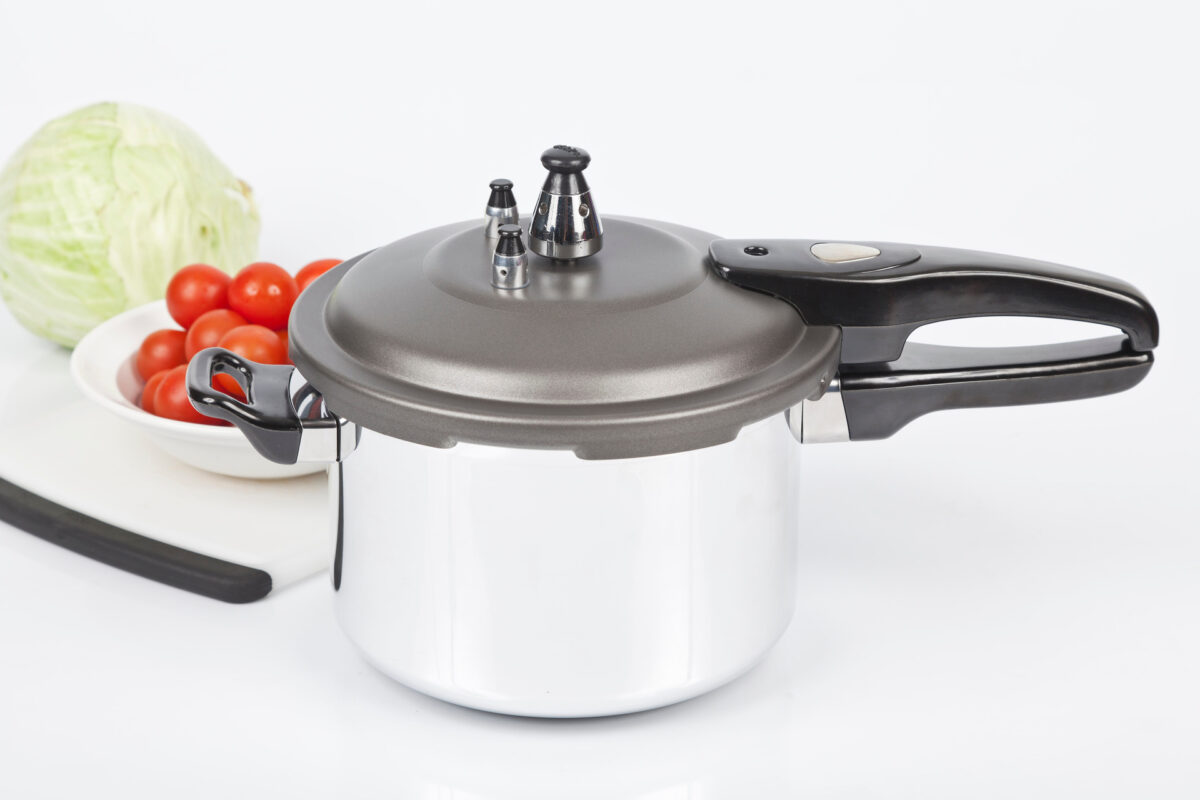

Step 4 – Layer and Wrap Fragile Items
To protect your kitchenware while in transit, follow these steps:
- Wrap each pot and pan individually with clean paper to create a protective barrier against scratches and impacts,
- For added protection, use bubble wrap for any fragile cookware, such as glass lids or delicate pans,
- When placing items inside the boxes, use sufficient cushioning materials like foam peanuts or towels to prevent shifting and minimize the risk of breakage,
- By layering and wrapping your objects carefully, you’ll ensure that everything arrives at your future location intact and ready to use.
Step 5 – Maximize Box Space
By maximizing box space, you can simplify the boxing-up process and ensure the safe transportation of your dishes. Start by strategically placing your items at the bottom of the box to create a stable foundation, and put lighter items on top of them. Utilize clean paper, towels, or bubble wrap to fill any gaps and ensure a snug fit inside the boxes. Be mindful not to overpack your crates, as it could lead to damage or make them too heavy to handle safely.
Nest Pots and Pans to Save Space and Reduce Movement
By placing smaller dishes inside larger ones, you can create a more compact arrangement, optimizing the use of your crates. This technique not only conserves space but also provides added protection for your cookware during transit. Ensure that each pot and pan is securely nested to prevent any shifting or potential damage.
Fill Any Gaps With Crumpled Packing Paper or Bubble Wrap
To prevent shifting and provide additional cushioning, fill these gaps with crumpled paper, kitchen towels, foam peanuts, or bubble wrap. This extra layer of protection helps to secure your dishware in place during transportation, minimizing the risk of damage. Carefully tuck in the cushioning material around each object to create a snug fit inside the container.
Avoid Overpacking to Prevent Damage During Transit
Overpacking can lead to unnecessary pressure on your belongings, increasing the risk of damage in the back of a truck. Ensure that each box is filled by forcing or stacking items too tightly. Leave enough space for appropriate padding and cushioning that will provide adequate protection.
Securing Handles and Lids
For objects with detachable handles, wrap them individually with clear paper or bubble wrap. Then, carefully place them inside the corresponding cookware to keep all parts together and protected. Secure lids by tapping them tightly to their object to prevent them from coming loose or lost in transit.
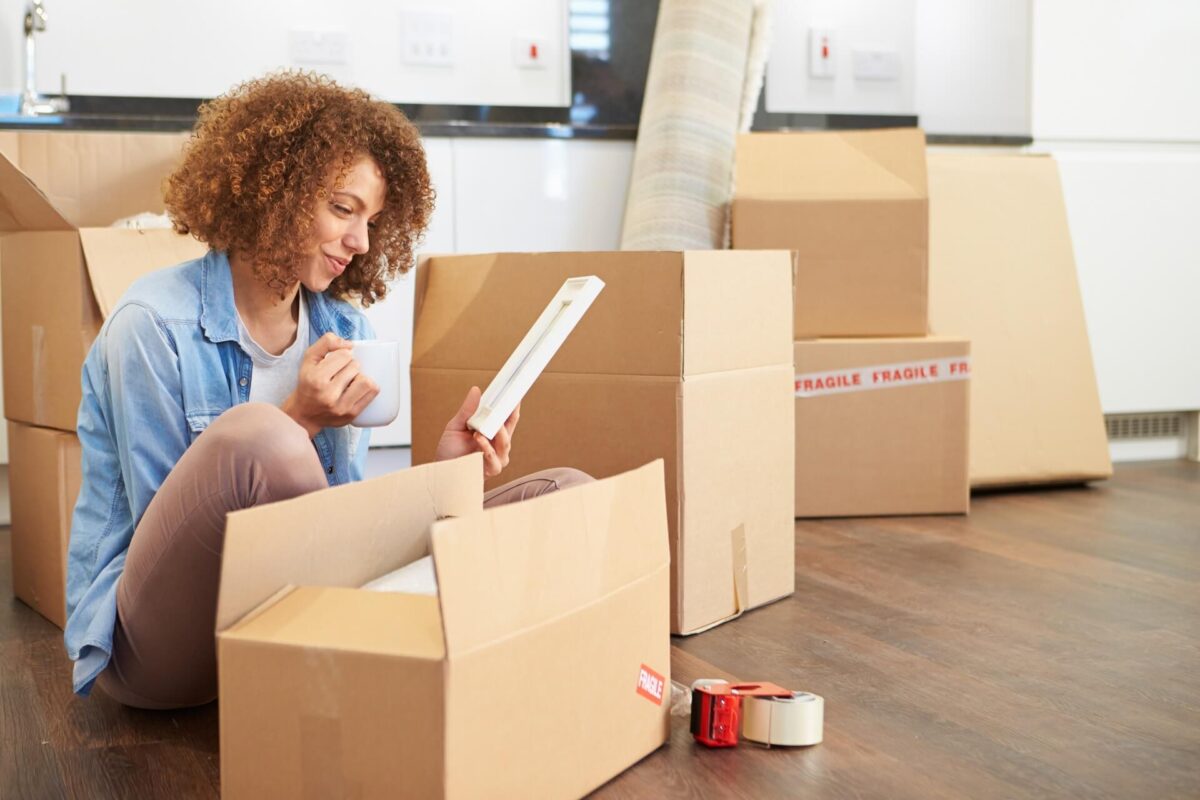

Step 6 – Label and Organize Boxes
As you pack your kitchenware, ensure a well-organized move by following these steps. First, clearly label the boxes containing your objects to easily identify them during unpacking. Use descriptive labels to specify their contents and destination.
Next, mark any fragile items with a “Fragile” sticker to alert your movers and ensure safe handling during loading and unloading. Lastly, create an inventory list detailing the contents of each box. This inventory will serve as a useful reference during unpacking, helping you locate specific items efficiently.
Step 7 – Hire International Movers Because They Know How to Pack Pots and Pans
When planning an international move, it’s crucial to hire experienced movers. They possess the expertise and knowledge to pack your belongings securely for long-distance transportation. Sunset International Shipping is well-versed in handling complex logistics and customs regulations.
Also, we offer safe packing services to ensure your kitchen essentials stay safe and in the same condition as they left. Our professional approach to storing your possessions reduces the risk of damage during transit, allowing you to focus on other aspects of your relocation abroad with confidence.
International Moving Company Can Assist You in More Than a Few Ways
With the support of an overseas shipping company, you can navigate the challenges of moving abroad with confidence and ease. Sunset International Shipping has the expertise to manage various aspects of your international relocation.
We provide services such as oversea vehicle shipment, secure transportation, storage solutions, and assistance with unpacking and setting up your new home. Our in-depth knowledge of international regulations and local cultures simplifies the moving process while allowing you to focus on adjusting to your new life and surroundings.


It Is Possible to Bring Your Pots and Pans to Another Country
With the right planning and assistance from Sunset International Shipping Company, relocating to another country will be a breeze. Contact us today to book our reliable services, tailored to handle the complexities of relocating your belongings across borders. Our team of experts will ensure a seamless transition, allowing you to embrace the convenience and comfort of your favorite cookware while exploring the culinary wonders of your international home and its cuisine.
FAQ
Yes, it is essential to thoroughly clean your cookware before wrapping everything up to prevent food residue and odors during transit.
While you can use cardboard crates, it’s better to invest in sturdy, heavy-duty boxes to protect your cookware during the long journey.
Yes, wrapping each pot and pan individually with clean paper or bubble wrap will provide extra protection against scratches and breakage.
Use tape to secure the handles and lids to the objects, ensuring they remain tightly in place while in transit.
Use special packaging materials, such as foam inserts or peanuts, to provide extra cushioning for delicate cookware.
Nesting these objects can help maximize box space, but make sure to use ample cushioning to avoid damage.
Be sure to clearly label the boxes as “Fragile” to alert movers to handle them with care.
Create an inventory list and label each box with its contents to make unpacking easier and more organized.
Hiring a reputable international company with experience in handling overseas moves can make the process smoother and less stressful.
Gather and sort the important documents for traveling abroad, including customs declarations and shipping requirements, for your destination country across the world.
Yes, having insurance coverage for your belongings provides peace of mind in case of any unforeseen damage and incidents during relocation.
Start boxing up your things well in advance, preferably a few weeks before the relocation, to avoid relocation stress and ensure an organized packing process.




